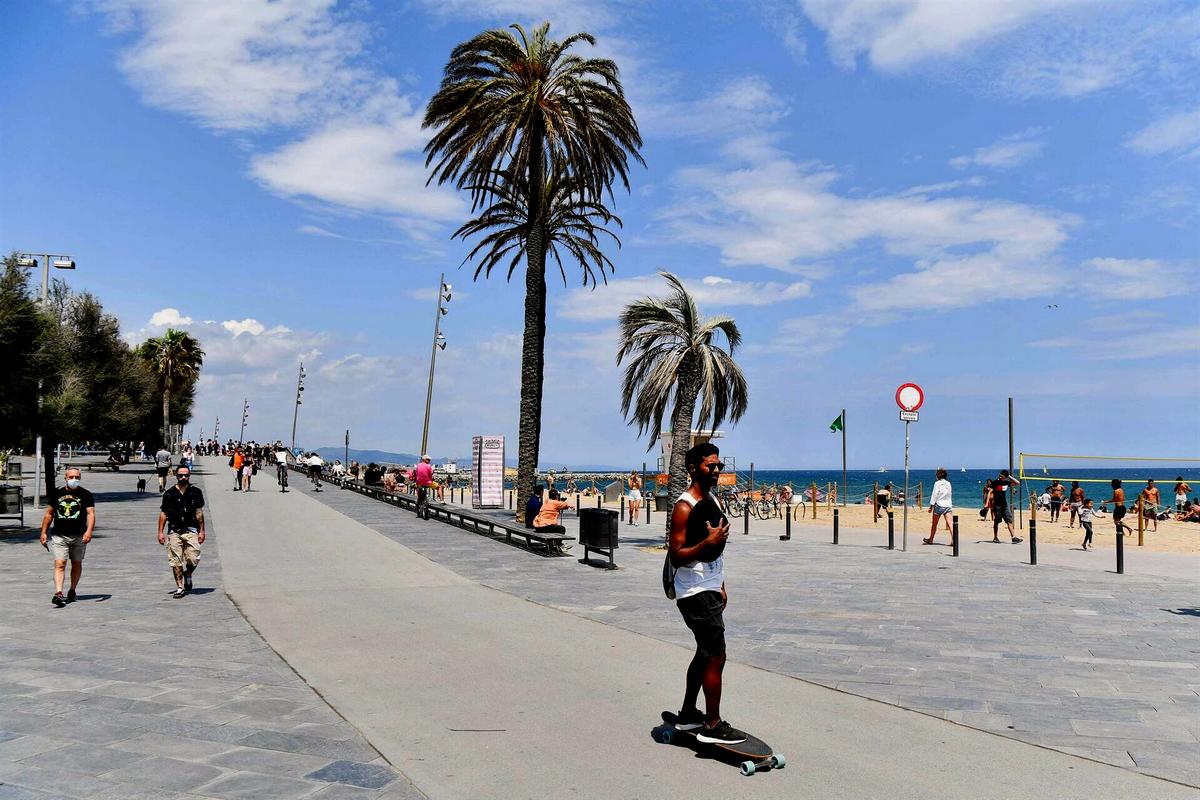On June 7, Spain opens its borders to vaccinated travelers from around the world in the hope that the influx of visitors will revive its important tourism sector, which has suffered from the coronavirus pandemic.
“Spain is a safe destination,” insists Health Minister Carolina Darias, adding that the country is “in the process of restoring its global leadership in tourism.”
Unvaccinated Europeans, who can now enter Spain with a negative PCR result within 72 hours, will be able to take a cheaper antigen test instead on Monday.
The UK, a huge tourist market for the country, has not yet removed Spain from the list of countries at risk, ie British travelers will have to quarantine after returning home, as well as pay for expensive tests on COVID-19.
The British usually make up the largest contingent of tourists to Spain – in 2019, more than one-fifth of the 83.5 million arrivals in Spain were from the UK.
However, representatives of the tourism sector still hope for an increase in the number of visitors in the summer.
Jose Luis Prieto, president of the Union of Travel Agents of Spain (Unav), hopes for an “impressive recovery” starting on June 7.
According to him, over the past few weeks, tour operators in the UK, France and Germany – the three main markets in Spain – have received a large number of requests.
Across the country, from the Costa del Sol to the Canary Islands, hotels and restaurants are reopening after months of closure, and airlines have resumed routes that fell in the midst of a pandemic.
On Monday morning alone, Malaga Airport expected about 20 different flights from places in Europe such as Berlin, Lille, Frankfurt and London.
Spain will also start handling cruise ships in its ports again on Monday.
However, Britain’s decision to keep Spain on its yellow list was “disappointing”, the health minister said.
Spain has taken a number of measures to lure British tourists to its shores, such as allowing them to enter without passing a PCR test since late May.
On Friday, Spain’s tourism minister said she did not understand the British government’s refusal to allow certain areas of Spain where low COVID-19 cases, such as the Canary Islands, were on the green list.
Amid uncertainty, the major tour operator TUI has canceled all its flights to Spain until June 13.
London will not reconsider its decision for another three weeks – a precious time for those working in the hotel sector, hoping to recoup some of the losses in 2020, when the number of visitors fell by 77 percent compared to a year earlier.
Heavily dependent on its tourism industry, Spain was one of the western countries most affected by the pandemic, where GDP fell by 10.8 percent in 2020.
The Spanish government has set a goal of attracting 45 million travelers by the end of the year.
But by the end of April, according to official statistics, only 1.8 million people had visited the country.

